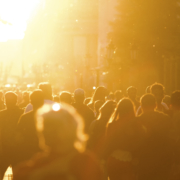The cost-of-living crisis: building more collective responses

Latest posts
Share:
The UK cost-of-living crisis is a complex problem.
- It has multiple root causes (inflation, the war in Ukraine, fuel prices, long-term economic trends and more).
- It is dynamic so it is changing and shifting as we work on it.
- No single institution can solve it alone (however powerful well intentioned or well-resourced they are). It is a problem that will only give in to collective action.
- And finally, some of the reasons it is so hard to shift is that there are trade-offs. Putting up wages puts pressure on inflation (and raises costs). Higher taxes have both political and economic implications, likewise with greater subsidies for things like energy costs.
For these reasons, there are no simple answers to the cost-of living crisis; no silver bullet solutions to reach for.
So, what do we do next?
In moments like this, when faced with problems with a high degree of complexity and uncertainty about ‘who should do what’, we need to stop calling for other people to ‘do something’ and start building better collective responses.
Complex problems by their nature need collective actions. We need actions that vary by context – that are adapted for different social groups, regions and the different ways that the cost-of-living crisis is driven and experienced.
Wasafiri has been supporting a range of organisations and clients with their work to build more collective responses to the Cost-of-Living Crisis:
- The Forward Institute has convened leaders from across some of the UK’s leading public, private and not-for-profit organisations. And together they are sharing ideas, collaborating and getting practical with their response.
- Brighton & Hove City Council convened a summit (facilitated by Wasafiri) that brought key partners together to align and coordinate support, share information and identify ideas and actions to strengthen a collective response. The large turnout demonstrated the high levels of motivation to work more collectively across the city.
Across this work we are noticing a few trends:
- The cost-of-living crisis cannot be solved at the individual level – food banks, personal finance advice, low-interest loans for travel passes, and even home insulation are all things that will help people to live in the current context but won’t change the context. They are useful and important, but they are a response to the presenting problem – not an attempt to shift its causes.
- Local collective action – the specific drivers and experiences of the cost-of-living crisis vary by geographic region but also industry, demographics, and a whole host of other variables. Consequently, responses need to be equally varied.
For example, in Cumbria, a rural area in the north of England, there is a lot of available employment but the cost of transport is a significant barrier to people accessing it. The current (government-funded) experiment to cap bus prices at a flat £2 has more than halved the cost of bus transport in the region and opened up employment opportunities.
For an even more innovative (and artistic) attempt to take a collective response check out Power, a project to get a street in London to become its own green power station. The Power project is a recognition that the incentives for individuals to invest in things like solar panels just don’t stack up. On top of this there are significant barriers for individuals including finding suppliers, dealing with planning permissions, having the upfront cash to invest. By taking a collective approach the logistics and the financial incentives are shifted and a sense of belonging and community is created.
Let’s look to the long term
The cost-of-living crisis is a symptom of an underlying system driven (in part) by a dependency on carbon-based energy. We know that we need to change this.
As the cost-of-living crisis stimulates us to change the way we do things – like how we build our homes, use transport, the food we eat, the energy we consume, the products we reuse (or never use) – let’s make these changes not just to get us through this storm but to help us adapt and move towards a more sustainable and even regenerative future.
Join our community of system change leaders.
To learn more about Systemcraft, our approach to complex change, and how to use it in your work – sign up for our online course.
Photo by Sarah Agnew on Unsplash















